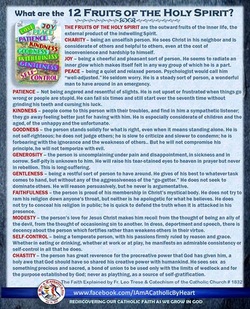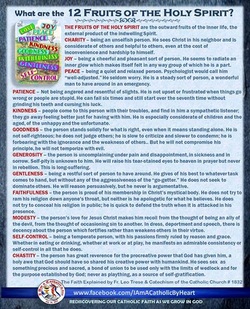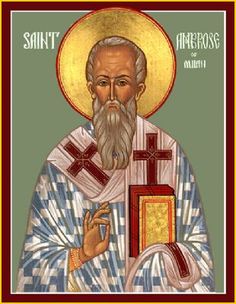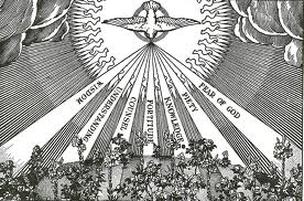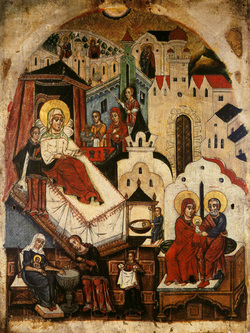
The Greek word used in Galatians 5:23 is "egkrateia", which means having command or "mastery over" (krat- as in "autocrat"), or possession of, "one's own behavior". Which is accomplished through and by the power of the Lord, "proceeding out from within oneself, but not by oneself".
Continency regards things which are lawful and unlawful. Thus a married person can resist the desire for lawful giving or receiving of the marriage debt. Thus a couple can agree to be continent as regards a pleasure which is lawful for them to receive, they are thus said to be Continent.
"...make every effort to add to your faith goodness; and to goodness, knowledge; and to knowledge, self-control; and to self-control, perseverance; and to perseverance, godliness; and to godliness, mutual affection; and to mutual affection, love".[2 Pet 1:5-7]
Two general objections are frequently urged against the state of continence.
First, it is said that the condition of continence is detrimental to the well-being of the individual. In such a statement, it will be frequently found, continence is understood as an unchaste celibacy, and such surely is not only a moral but a physical evil most pernicious. Certain it is, however, that the self-sacrifice and control involved in true continence finds fruitage in a greater measure of moral power. The words of Jesus Christ (Matthew 19:12) may be here appealed to. Moreover, the abstinence of which we speak is a condition of increased physical vigor and energy. Of this many savages are not unmindful; for among a number of these continence is imposed upon the braves during times of war as a means of fostering and strengthening their daring and courage.
A second objection rests upon considerations of the social good. It is contended that a state of continence means failure to discharge the social obligation of conserving the species. But such an obligation falls, not upon every member of the community, but upon society at large, and is amply discharged though there be individual exceptions. Indeed the non-fulfillment of this duty is never threatened by a too general observance of sexual abstinence. On the contrary it is only the unlawful gratification of carnal passion that can menace the due growth of population. But it may be said that the practice of continence withdraws form the function of reproduction the worthier members of society-those whose possible offspring would be the most desirable citizens of the State. This contention, however, overlooks the social service of the example set by such observance-a service which, in view of the duty incumbent upon every individual of society of observing absolute chastity for periods of greater or less duration, is of highest value.
Chastity - differs from Continency because chastity withdraws man from unlawful desires, whereas the continent man is subject to concupiscence, but is not led away; whereas the chaste man is neither subject to, nor led away from them.
Chastity is the virtue which excludes or moderates the indulgence of the sexual appetite. It is a form of the virtue of temperance, which controls according to right reason the desire for and use of those things which afford the greatest sensual pleasures. The sources of such delectation are food and drink, by means of which the life of the individual is conserved, and the union of the sexes, by means of which the permanence of the species is secured. Chastity, therefore, is allied to abstinence and sobriety; for, as by these latter the pleasures of the nutritive functions are rightly regulated, so by chastity the procreative appetite is duly restricted.



